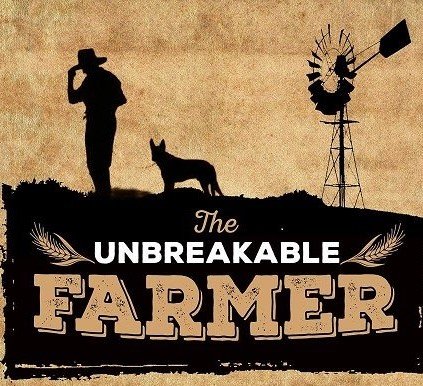Beyond the Buzzword: Why Rural Communities Need Capacity, Not Just Resilience
If I had a dollar for every time I heard the word “resilience” used after a drought, flood or fire, I’d probably be able to fund half the mental health programs our rural communities need right now.
“Resilience” gets thrown around like a solution, but when you’re in the thick of it when the paddocks are bare, the stock are gone, and hope is stretched thin resilience doesn’t feel like a strength. It feels like survival. And often, it’s survival born out of having no other option.
Resilience Isn’t a Trait: It’s a Last Resort
Let me be clear: I don’t have a problem with the concept of resilience. I’ve lived it. I’ve seen it. And I respect it deeply.
But from my experience both lived and shared I don’t believe resilience is a personal trait people are born with. It’s an action. One that kicks in when people are left with no other support or choice.
When I lost the farm, people told me I was resilient. But what they didn’t see was the internal chaos. The broken identity. The silence I sat in, because I thought that was the tough thing to do.
I didn’t keep going because I was strong, I kept going because I had to.
From Surviving to Thriving: The Power of Capacity
After years working across rural, regional and remote Australia, I’ve started to ask a better question: What if we stopped expecting people to be resilient, and started giving them the tools to build capacity instead?
Capacity is not about bouncing back. It’s about building up. It’s about creating the conditions where people, families and communities are supported before crisis hits, not just expected to recover afterwards.
Where resilience says “You’ve got this,” Capacity says “We’ve got this.”
What Does Capacity Look Like?
I’ve seen the difference firsthand in the paddocks, the firegrounds, and the flooded towns.
Where capacity exists, so does connection. Community leaders are supported, not stretched. Mental health services are consistent, local, and trusted. Conversations happen early not after the damage is done.
Capacity is:
Local mental health support that’s ongoing, not temporary
Education around emotional wellbeing and mental fitness
Community connection that’s woven into everyday life
Strong leadership structures that don’t rely on one or two exhausted champions
Funding that supports grassroots solutions, not just headlines
Let’s Stop Glorifying Pain
If we’re serious about changing the story around rural mental health, we need to stop applauding people for how well they suffer and start doing more to make sure they don’t have to.
Being “The Unbreakable Farmer” doesn’t mean I’ve never bent under pressure it means I’ve rebuilt. And every time, it was the people around me who helped make that possible.
Resilience should be a safety net, not a default expectation. It shouldn’t be the only tool in the shed.
A Call to Rethink, Rebuild and Reinforce
So here’s my challenge: next time you hear someone say, “We just need to build resilience,” ask how?
Ask what supports are in place. What connections are being strengthened. What systems are being built to make sure the next tough season doesn’t hit as hard.
Let’s start changing the conversation from resilience to capacity. From surviving to thriving. From burnout to got your back.
Because our rural communities don’t just deserve pats on the back. They deserve infrastructure, investment, and real, long-term support.
I'd love to hear your thoughts:
How is your community building capacity for future challenges?
What programs or supports have made a real difference where you live or work?
Let’s keep the conversation going and keep building together.
Support Services
Lifeline – 13 11 14 (24/7 crisis support)
TIACS – 0488 846 988 (Free support for tradies and rural workers)
Your Local GP or Health Service – Don’t wait until it’s urgent
